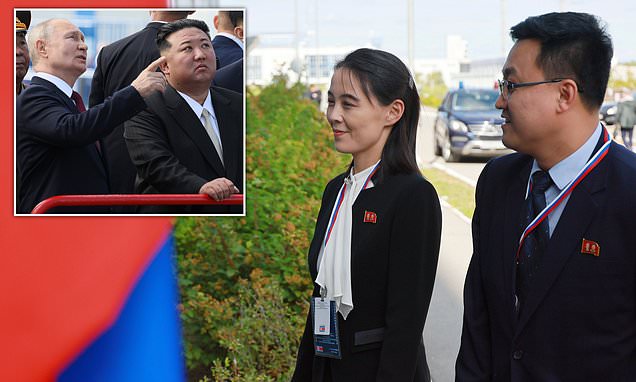Kim Yo-jong, the influential sister of North Korean leader Kim Jong-un, has declared that the United States must officially acknowledge North Korea as a nuclear-armed state if it wishes to resume meaningful diplomatic engagement. Her remarks mark a hardening of Pyongyang’s position, signaling that past frameworks centered on denuclearization are no longer acceptable to the North.
In a statement released through state media, Kim emphasized that North Korea’s nuclear status is “an unchangeable reality” and denounced Washington’s continued insistence on disarmament as “delusional.” She made it clear that her country’s nuclear weapons program is non-negotiable and enshrined in its constitution.
“Our nuclear force is the foundation of our national sovereignty,” Kim said. “The U.S. must abandon its outdated illusion of denuclearization and accept the new geopolitical reality.”
Kim also addressed the past relationship between her brother and former U.S. President Donald Trump, who met Kim Jong-un in three high-profile summits between 2018 and 2019. She acknowledged that the personal rapport between the two leaders was “not bad,” but firmly rejected the idea that such ties could be used to pressure North Korea into giving up its nuclear arsenal.
“The leaders’ personal relations should not be abused to push for denuclearization,” she said. “That would only insult our dignity and misread the current reality.”
North Korea gets closer to Russia
North Korea’s message comes amid a broader recalibration of its foreign policy. The country has strengthened its ties with Russia and expanded its missile and nuclear capabilities, framing these developments as defensive measures in response to what it views as growing U.S.-led military pressure in the region.
Over the past year, North Korea and Russia have significantly expanded their military, economic, and political cooperation. The two countries have exchanged high-level delegations, signed new trade agreements, and are reportedly coordinating on defense technology and regional security.
“Our strategic partnership with Russia is based on mutual respect and shared opposition to U.S. imperialism,” Kim said in an earlier address. “This relationship has become a new pillar of peace and balance in the region.”
Analysts note that the tone of Kim’s statement reflects a growing confidence within North Korea that it can no longer be coerced into concessions. In fact, many believe that Pyongyang views its nuclear deterrent as essential to maintaining regime stability and achieving strategic parity.
The statement dims hopes for renewed negotiations between Washington and Pyongyang, especially under frameworks that prioritize denuclearization. While the Biden and Trump administrations have both emphasized North Korea’s complete disarmament as a policy goal, the North has shown no interest in resuming talks under such terms.
Jenny Town, a senior fellow at the Stimson Center, commented that future negotiations — if they happen at all — would require a drastically new approach.
“The U.S. will have to come to the table with more realistic expectations,” she said. “North Korea has moved on from the old game.”
Kim Yo-jong’s message leaves little room for ambiguity: North Korea views its nuclear status as non-negotiable, and future dialogue must begin with U.S. recognition of that reality. As Pyongyang grows bolder in its diplomatic posture, Washington may be forced to reconsider its long-standing assumptions — or face continued stalemate on the Korean Peninsula.








